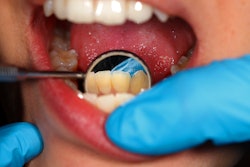
New research in mice has revealed a potential role for metformin in managing periodontitis, according to a study published in Genes & Diseases.
A group at Chongqing Medical University in China studied cellular interactions to elucidate metformin's potential role in relation to HMGB1, a proinflammatory protein involved in the progression of periodontitis. They observed that metformin inhibited HMGB1 by triggering autophagy via the AMPK/mTOR cellular pathway.
"While our study presents compelling evidence on the protective role of metformin in periodontitis, further research is needed," the research team stated in a news release. "We are optimistic that our findings will pave the way for more comprehensive studies on the relationship between metformin and HMGB1 in periodontitis, ultimately leading to more effective treatment options."
Periodontitis is an oral chronic inflammatory disease. Inhibiting tissue destruction and promoting tissue regeneration are important means of treating periodontitis, the group explained.
Previous research has shown that metformin not only has a hypoglycemic effect, but it also has an anti-inflammatory effect, and it can inhibit oxidative stress and activate autophagy through the AMPK/mTOR pathway. Yet whether this activity is related to HMGB1 in periodontitis has been unclear, the researchers noted.
In the study, the group induced periodontitis in a murine model and showed that metformin attenuated alveolar bone resorption, a major hallmark of the disease.
Ultimately, the study describes HMGB1's pivotal role in inducing oxidative stress in periodontal cells and adds further credence to the protein being a potential target for periodontal intervention, the group wrote.
"This opens up a promising avenue for future research and the development of drugs aimed at HMGB1," they suggested.
Read the full article.



















